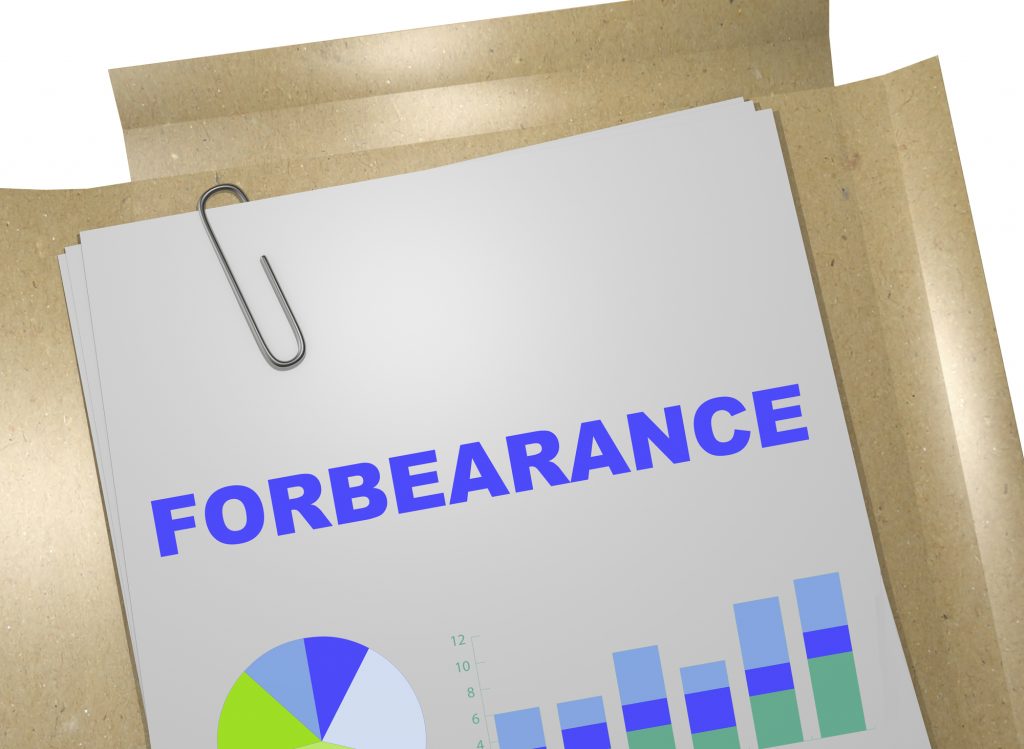 The worst of the COVID-19 virus may be behind us from a medical perspective, but economically the pain has just begun. Some states are slowly, very slowly, getting back to work. Others are still under stay-at-home orders. During the initial period of recovery, there are some words to watch for that may be helpful to you if you’re experiencing cash flow problems: forbearance, deferral, and forgiveness. Be sure to understand what they mean from a legal and financial perspective, whether they apply to you, and what the ramifications of their application will be. Also consider what they mean to you if you’re in the lender position and being asked to give borrowers—customers and other buyers—more time to pay.
The worst of the COVID-19 virus may be behind us from a medical perspective, but economically the pain has just begun. Some states are slowly, very slowly, getting back to work. Others are still under stay-at-home orders. During the initial period of recovery, there are some words to watch for that may be helpful to you if you’re experiencing cash flow problems: forbearance, deferral, and forgiveness. Be sure to understand what they mean from a legal and financial perspective, whether they apply to you, and what the ramifications of their application will be. Also consider what they mean to you if you’re in the lender position and being asked to give borrowers—customers and other buyers—more time to pay.
Definitions
Businesses struggling with cash flow may find it difficult to meet their obligations. Toward this end, they may be able to work with landlords, vendors, and other creditors to ease for the moment their payment requirements. Alternatively, you may be that landlord, vendor, or other creditor being asked to wait for payment. To make arrangements, understand the options:
- Forbearance. This is the action of refraining from exercising a legal right, such as the enforcement of a debt. A lender may simply not institute a collection action even though there is a legal right to do so. Ultimately, though, the debt must be paid (see deferral).
- Deferral. This is a postponement of an action or event. A landlord may allow the rent to be paid later than the due date, giving more time to come up with the money. The amount owed doesn’t change, only the payment date is delayed.
- Forgiveness. This is the action of waiving the right to payment. With this action, payment need never be made (to the extent of the forgiveness).
In the case of forbearance or deferral, interest may or may not continue to accrual; it depends on the situation. If it continues to accrue, then the borrower will ultimately owe more.
Tax rules
The action taken with respect to money owed has tax ramifications for both the creditor/lender and the debtor/borrower.
Forbearance. Under the CARES Act, there’s a special rule requiring lenders to give forbearance of certain home mortgage loans within set time limits. Borrowers can’t be foreclosed upon and no interest or penalties accrue during this period.
- For the borrower. No deduction for mortgage interest can be claimed until payment is made.
- For the lender. The CARES Act has temporary accounting relief with respect to loan forbearance. It changes reporting rules under GAAP (i.e., this isn’t treated as a loan modification).
Forbearance may also be used for car loans and credit card debt to the extent permitted by the lenders.
Deferral. For small businesses reporting on the cash method of accounting (most small businesses), the postponement means that deductible amounts are delayed until payment. Lenders don’t report income until received.
Forgiveness. Generally, the cancellation of debt is treated as taxable income to the borrower. However, no income results if the borrower is in bankruptcy or insolvent at the time of forgiveness. What’s more, forgiveness of loans under the Paycheck Protection Program (PPP) has been given special tax treatment. Specifically, this loan forgiveness is not taxable income. Details about the extent of loan forgiveness under the PPP can be found at the SBA.
Note: Discounts, such as minor temporary reductions or rebates of car insurance or utility bills being given as a result of COVID-19, do not have any tax impact. They are treated as a reduction of the purchase price of goods and services.
Credit rating
It’s essential for businesses and individuals (small business owners) to maintain a good credit rating as a way to obtain financing, or financing at favorable rates, in the future. Failing to make required payments can adversely impact a credit rating. But working with lenders to obtain forbearance, deferral, or forgiveness, may have no affect on your credit rating. Equifax and TransUnion explain the impact of COVID-19-related actions on credit reports. Keep in mind that if you negotiate with a credit card company to modify the debt, likely it will result in a reduced credit line (at least for some period).
Final thought
Forbearance, deferral, and forgiveness usually isn’t automatic. It’s up to the borrower to approach the lender and negotiate favorable terms. Lenders don’t want to push borrowers into bankruptcy because then their chances of recovery become greatly reduced. Given this unprecedented situation resulting from COVID-19, you can save your business by requesting patience. And if you’re on the other side of the transaction equation, consider exercising patience.


